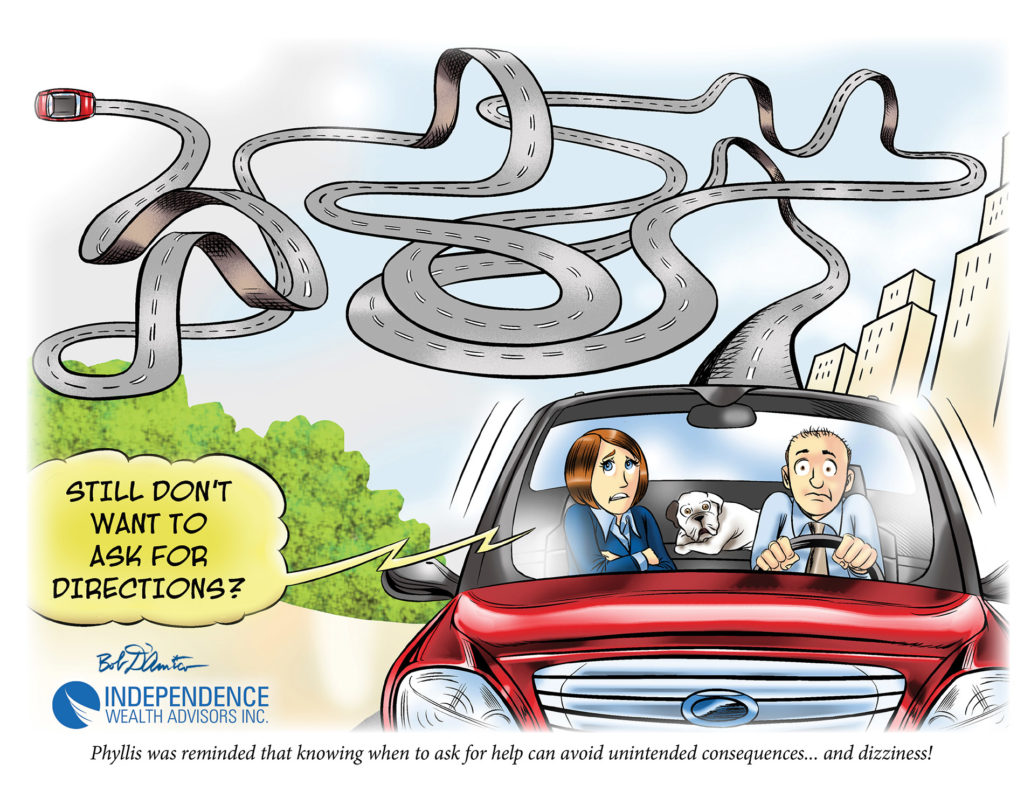Taking control of your own financial plan is an important goal. But how do you best accomplish this? And how can a financial planner assist?
What financial planners do for a living is obvious from their title: they help people plan for many different aspects of their financial life, from saving and investing to taxes and retirement and much more.
This definition seems to place the burden of work on the planner. And while they are responsible for much of the “heavy lifting” in the planning process, a client should also be prepared to discuss their individual financial needs. That includes making assumptions.
Assumptions are the Base You Build On
We make assumptions about many things in our lives because we can’t see the future. If we could, we wouldn’t need to plan for anything, except to be in the right place at the right time.
The assumptions we make help us think clearly about an uncertain future. We can’t predict what’s going to happen, but we can make judgments about what’s likely to happen, based on history, statistics, psychology and more.
A financial plan is only as good as its assumptions. So it helps to consider the assumptions you make as the starting point of your plan, much like the foundation of a house. Except with this house, you know in advance the ground you’re building on is going to shift someday—maybe by a little or a lot.
Your life is going to change in uncertain and unpredictable ways. So the plans you make must be built for change as well, including the assumptions that your plan is built upon.
We should instead think of a financial plan like a houseboat. You start with a strong, watertight base; but you also build your houseboat so you can take it whenever you need to or want to.
With a houseboat, you’re always making assumptions about the future and planning for change. What will you do when the tide goes in or out? What if a storm comes or the waves turn rocky? Where do you want to go with your houseboat, and where can you anchor it?
What Can You Control?
What elements do you typically have total control over in your life? Often these are the core elements that make you the person you are: your values, your beliefs, your goals. You can choose what these are and how much influence they will have on your decision making.
In the gray area are elements where we have some control but not total control. Think about your health—there are many ways you can affect your health for the better (i.e., diet and exercise) or for the worse (i.e., smoking, no exercise).
Then there are the elements where you have no control: politics, the stock market, interest rates, taxes, etc. Like changes to the weather, you need be aware and prepare for them, but you can’t do anything to change their direction or reverse their course.
Psychologists observe that people can control their inputs but not their outcomes. This seems incongruent to financial planning, where the focus is often on hitting specific numbers or targets, or rates of return. But gaining a sense of control over your future depends on recognizing and letting go of the elements you can’t control, and focusing more on what you can control—your financial plan assumptions.
How to Improve Your Financial Plan Assumptions
Here are some tips related to the assumptions in your plan:
- Share complete information about your current financial situation, your values and your goals. The more realistic your assumptions are, the better you and your financial planner will be in establishing your plan.
- Revisit your plan periodically to update your assumptions. Adapting your assumptions when life changes occur will put you in a better position to follow through on your plan.
- Ask your financial planner about the assumptions used in the development of your financial plan, including accounting for uncertainty and uncontrollable changes.
Some assumptions to consider when planning your future include the amount of money you will save and for what duration, the inflation rate, the tax rates for distributions, rates of returns on investments, at what age will you collect social security and at what age you will retire.
In revisiting the plan, changes to assumptions can be addressed and ways of adapting considered. Even during retirement, it is helpful to adjust to changes that come along, for example spending less in a down market year. This is how good planning and good assumptions pay off.
In order to assert control over your future, having a strategy for achieving your desired financial goals requires you develop a plan and good planning involves identifying, implementing and testing assumptions. By following this strategy on a consistent basis, you can make interim adjustments and increase the probability that you will reach your stated goals.



Join the conversation
We would love to hear from you